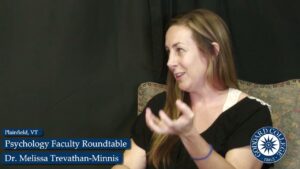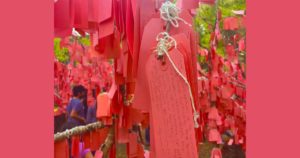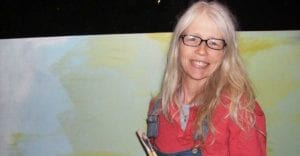First week of March, still frigid in New York, where it feels like someone in the sky kitchen said, “There’s hardly any winter left in the pot–you finish it,” and dumped a double helping on our plate. Still the same ice ridges and filthy snow heaps, still the pedestrian sidewalk rage at being trapped behind slow walkers trailing cigarette smoke.
The good news is, I’m finally writing actual chapters of a novel that I’ve been planning. After years of writing mostly poetry, thinking I might never return to long-form narrative, I’m newly in love with the possibilities of characters interacting over time. And that, in turn, is whetting my appetite for stories that feed my sense of those possibilities.
I’ve found two such items on my local library shelves, and they could hardly be more different from each other. One is Samuel Richardson’s 18th century novel Clarissa, or, the History of a Young Lady. The second is La Ciénaga (“The Swamp”), the first feature film by Argentinean director Lucrecia Martel (2001).
I don’t have space here to say much about Clarissa, other than that I’m a few hundred pages in (with over a thousand to go!), and I’m amazed at what a different experience I’m having from the one I expected based on the standard plot summary, i.e. that Clarissa is a virtuous young woman who’s abducted and raped by a reprobate named Lovelace.
I’m amazed that Richardson, a printer by trade, invested his imagination so fully in a complex character of another class and gender.
I’m amazed at the ways Clarissa dramatizes and articulates the wonders of self-assertion through the act of writing.
I’m amazed that a highly popular novel–a page-turner in its day–contains so many long, highly ornate sentences.
I’m amazed at how Clarissa anticipates Lolita in the wicked attractions of Lovelace’s masterly rhetoric, and that practically the first thing the rake does after capturing his prize is to sit down and write a detailed inventory of her apparel.
I’m having a ball with Clarissa, but La Ciénaga haunts me. The film opens at the crumbling semi-rural estate of a family whose stories weave in and out of a remarkable narrative web that has no apparent center, like a small swatch cut out from an infinite bolt of fabric. There’s the story of Momi, a disaffected 15-year-old girl who is passionately attached to her family’s young “Indian” maid, Isabel; that of Mecha, the mother of Momi and her siblings, stumbling yet imperious in her alcoholic daze, apparently on her way to replicating the fate of her own mother, who took to her bed one day and never got up until she died more than a decade later; Tali, Mecha’s cousin or cousin-like friend, more competent but discouraged, her life almost submerged in her own family; and Luchi, Tali’s youngest son, imaginative, fearful, accident-prone, doomed. It is also the story of a miraculous appearance of the Virgin, sighted on a ledge beneath a water tank in the town of La Ciénaga, where Tali’s family lives. And, in an elliptical yet emphatic move on the filmmaker’s part, it is very much the story of the maid Isabel, who endures Mecha’s paranoid, racist abuse alongside Momi’s caresses, who has little to say and withholds her inner life–and yet who clearly has an inner life, one we hunger to know largely because of the way in which we see Momi seeing her. A sequence in which Momi observes from a distance as Isa remonstrates with her boyfriend in a working-class bar–about what, we can only guess–suggests particularly strongly the ways in which the viewer’s relationship to the film’s characters is like that of Momi in relation to Isa: charged, intimate, yet insistently fragmentary.

La Ciénaga has on offer that wonderful thing that is the lure of all fiction: a window into other people’s minds. But here, there’s something more–not just the drama and irony of the collision of those different ways of thinking and feeling (one of the payoffs of Clarissa, where letters furnish privileged insight into adversarial characters who can’t know each other’s motives as we know each of theirs), but a reflection on the borders between private emotion and shared information. We see this, for instance, in the early scene where Momi repeatedly whispers “Thank God for giving me Isabel” over the napping Isa, or where the boy Luchi probes his mouth with his tongue upon hearing an urban legend about a fierce pseudo-dog “with two rows of teeth”; knowing that he’s just been sent to the dentist to deal with an extra tooth on the roof of his mouth, we realize the poetic connection he’s making. Such intimate moments, suggestive of inner life, bind us very closely to a handful of characters; whereas someone like José, Mecha’s oldest son, who lives in Buenos Aires with his father’s former lover and seems to be erotically enmeshed with both his mother and sister Vero, appears to be all surface. And yet: there is no sense that the movie is really about Momi, or Luchi, or Isa. They are not “protagonists.” There is only the conviction that the lives of overlooked people–mostly women and girls, and one strange little boy–are infinitely complex, mysteriously connected, all of a piece, yet haunted by solitude.
Encountering this beautiful work by an artist so fierce in pursuing her own sense, not merely of a story, but of all that Story can be, I remember words I’ve loved by Leslie Marmon Silko: “one story is only the beginning of many stories, and…stories never truly end” (from “Language and Literature from a Pueblo Indian Perspective”). And I feel invigorated. The book I’m trying to write will have little in common, either in theme or form, with La Ciénaga, but by radically enlarging my sense of narrative, Lucrecia Martel has granted me permission I didn’t know I needed.
Back to the computer. Let’s see what I can do.







